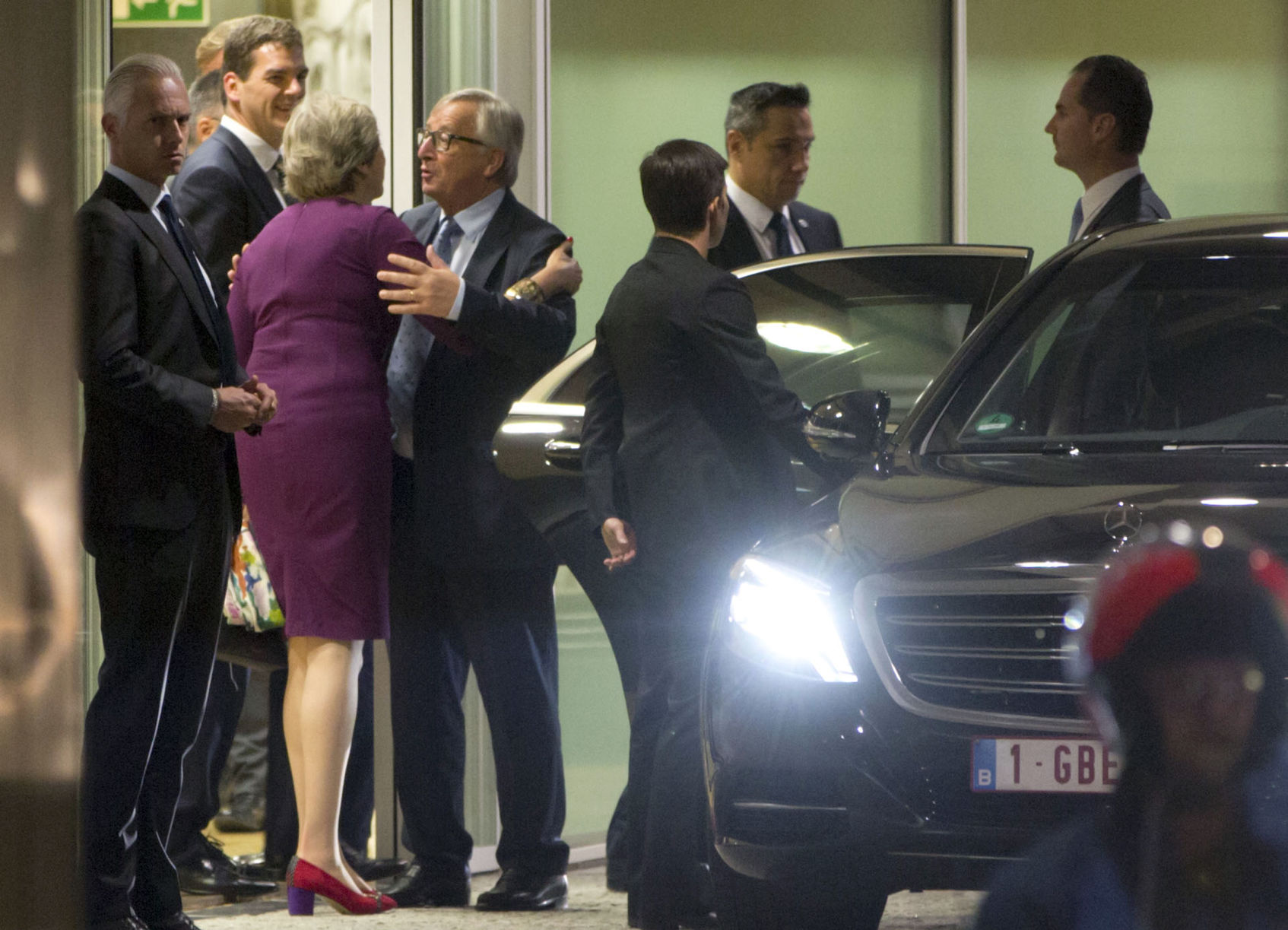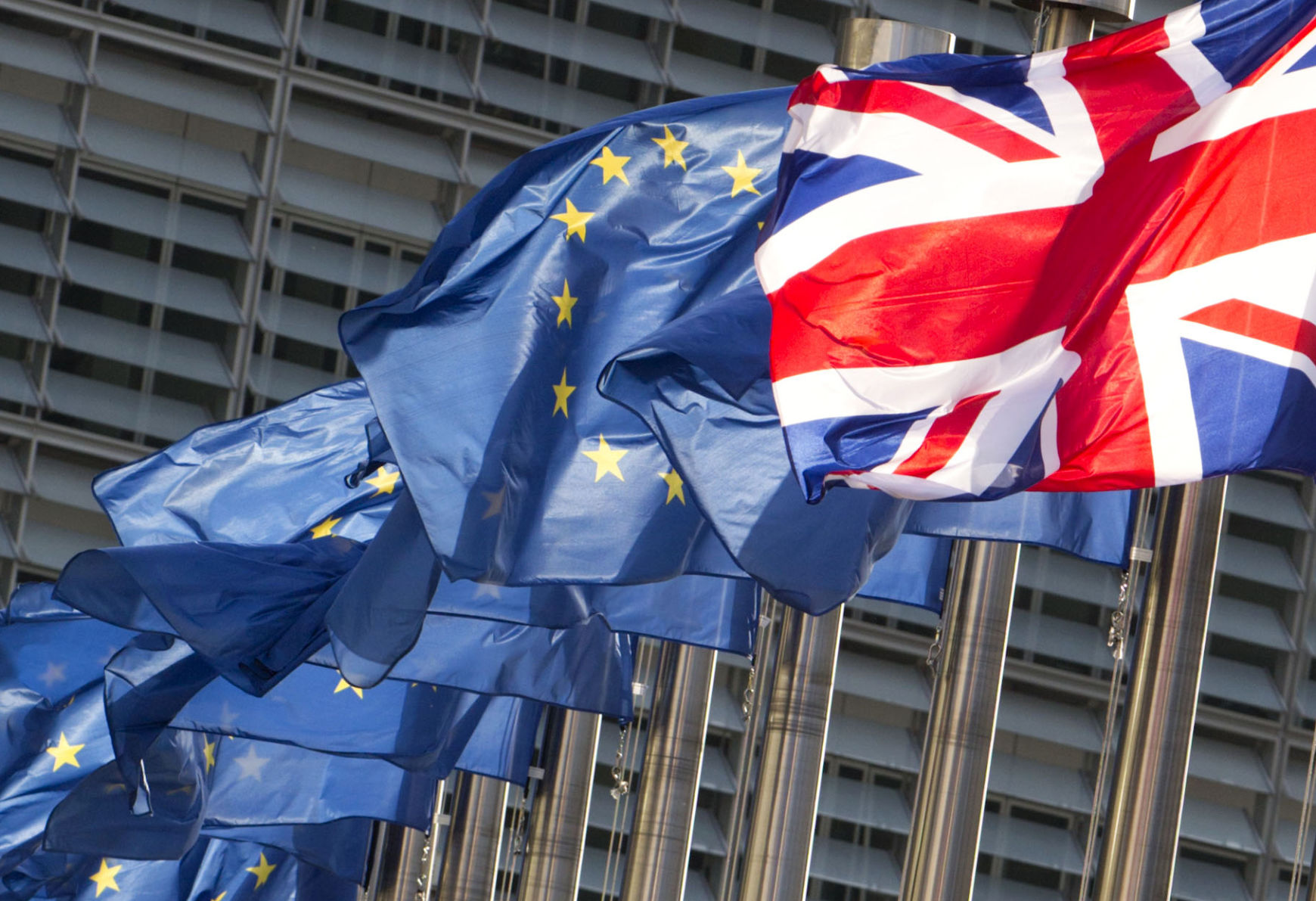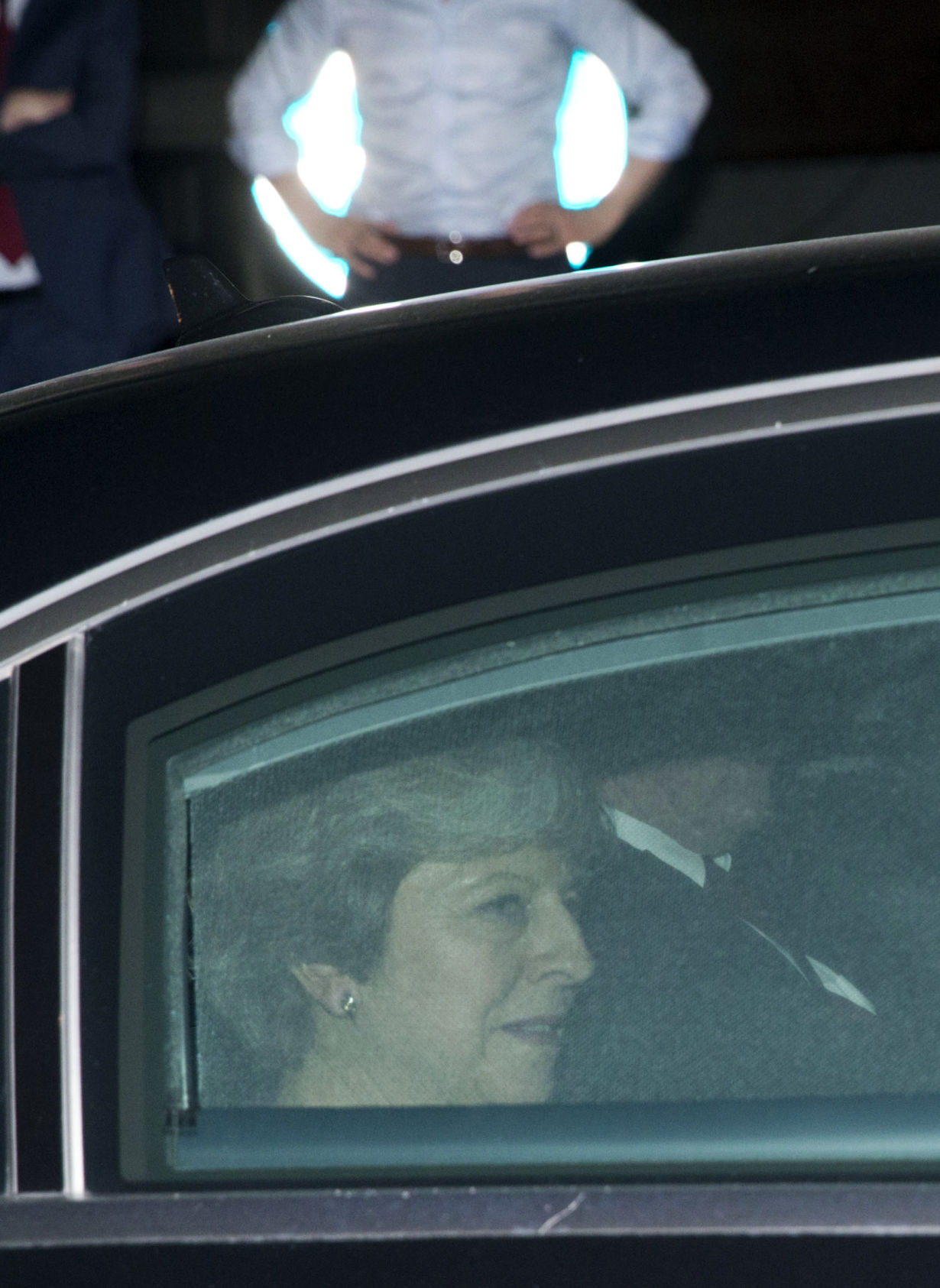BRUSSELS (AP) — Britain’s prime minister capped a day of Brexit diplomacy Monday with hugs from the chief of the European Union’s executive arm and an agreement that negotiations on the U.K.’s departure from the EU need to be sped
BRUSSELS (AP) — Britain’s prime minister capped a day of Brexit diplomacy Monday with hugs from the chief of the European Union’s executive arm and an agreement that negotiations on the U.K.’s departure from the EU need to be sped up.
Prime Minister Theresa May and European Commission President Jean-Claude Juncker said after dining together in Brussels that the stalled talks “should accelerate over the months to come.”
Earlier in the day, May spoke by telephone with German Chancellor Angela Merkel, French President Emmanuel Macron and Irish leader Leo Varadkar to build support before the working dinner with senior European Union officials.
Britain is set to cut its membership with the EU in March 2019. Officials have said the negotiations should be concluded by November 2018, making haste a necessity.
May and Juncker said their dinner “took place in a constructive and friendly atmosphere,” a stark contrast to increasingly bad-tempered barbs the two sides exchanged in recent weeks.
British Chancellor Philip Hammond on Friday described the EU as “the enemy” in the Brexit negotiations. Hammond later apologized.
Juncker said ahead of the dinner there would be an “autopsy” at the end, but that the negotiations did not appear dead yet.
At the end of their Monday night dinner, he escorted May to her car and warmly embraced her. He also gave Britain’s chief Brexit negotiator, David Davis, a big hug.
May is scheduled to join the leaders of the 27 other EU countries at a Brussels summit later this week. The remaining countries were set to announce there was insufficient progress in the talks to begin negotiating a future trade relationship, a step Britain badly wants.
The dinner came only days after EU chief negotiator Michel Barnier warned that the latest round of Brexit talks ended in a “disturbing deadlock” over Britain’s financial obligations to the bloc.
EU estimates suggest Britain must pay from 60 billion euros to 100 billion euros ($80 billion to $120 billion) to settle commitments it made while part of the EU, such as development projects and the pensions of civil servants. Britain has rejected such figures.
May’s Downing Street office downplayed any suggestion that new proposals were on the table, arguing that her recent speech in Florence, Italy constituted her latest offer.
The EU is demanding progress on the so-called divorce issues — the financial settlement, citizens’ rights and the status of the border between the Republic of Ireland and Northern Ireland — before talks can move on to issues such as future trading and security arrangements.
By speaking with EU heads of state in advance, May likely is trying to re-position the country in the talks, said Victoria Honeyman, a lecturer in British politics at the University of Leeds.
“If May can try to get some leverage with Merkel, Macron etc. then she might be able to reach a deal … that will require (Barnier) to be given new instructions,” said Honeyman.
British Foreign Secretary Boris Johnson on Monday urged the EU to speed up talks and start a discussion of the future relationship with the U.K.
Johnson said it was time for the negotiators to get moving and “stop letting the grass grow under our feet.”
The pressure is on for May and her government. Big business, and in particular the financial services industry, is pressuring the country’s leaders to act, arguing that further delays will force companies to relocate.
Financial firms with EU headquarters in London worry about losing the automatic right to do business in the rest of the EU if Britain crashes out of the bloc without agreeing on a new trade relationship.
TheCityUK, a lobbying group for financial services, warned Monday that firms will start relocating jobs in the new year unless a transitional deal is struck soon.
“They can still take their foot off the accelerator if a transitional deal is agreed, but without progress soon, it may be too late,” the group’s chief executive, Miles Celic, said. “Once businesses start moving, there is no reverse gear.”
———
Lorne Cook in Brussels and Sylvie Corbet in Paris contributed to this story.




